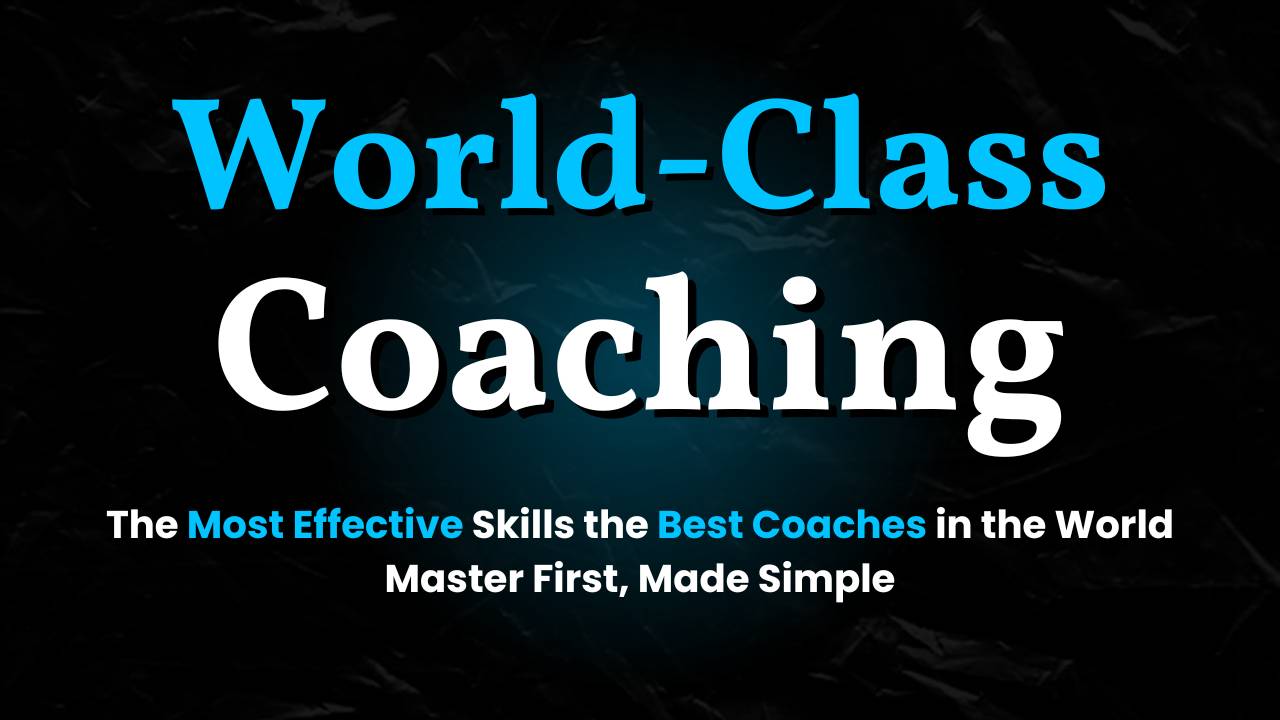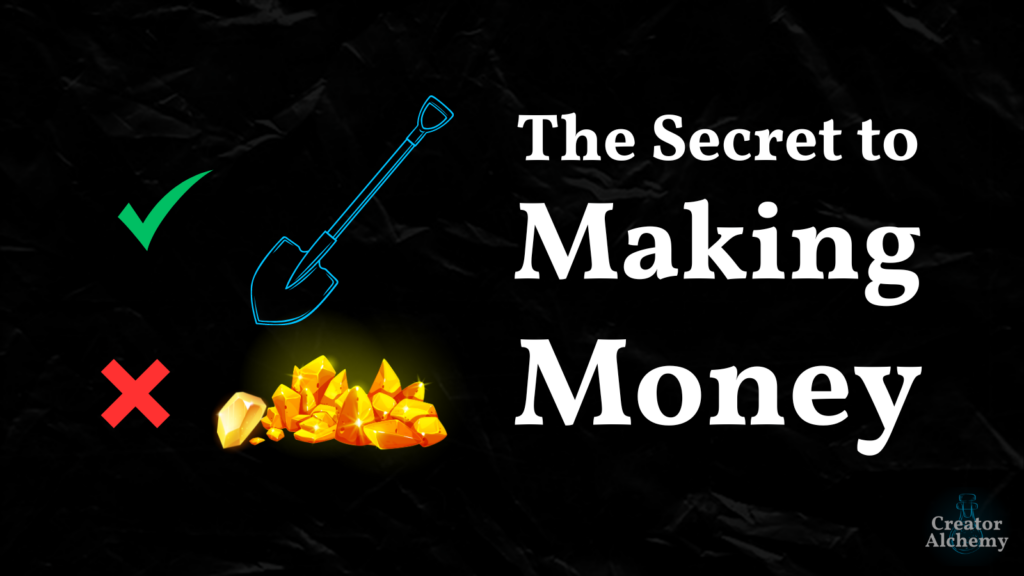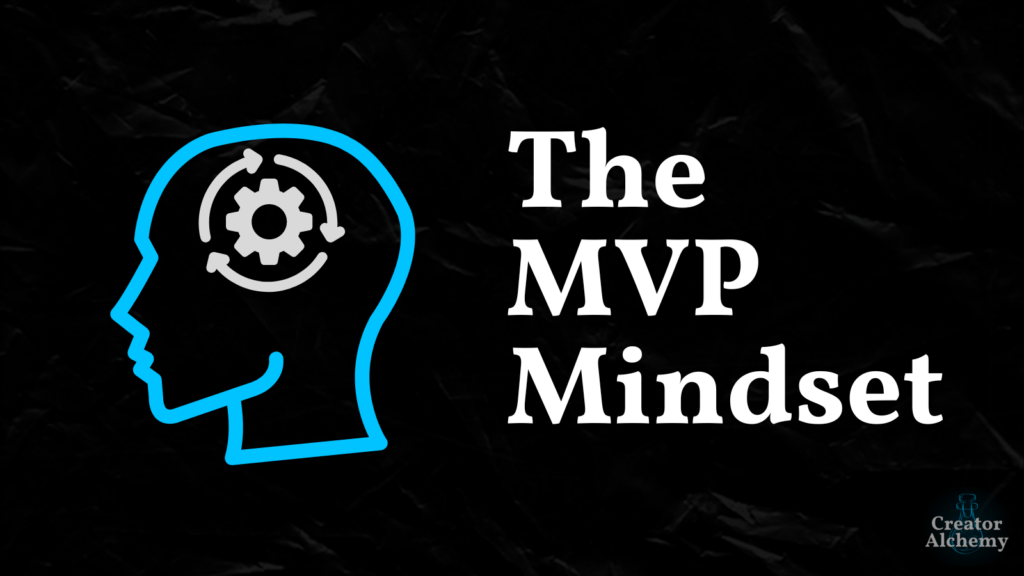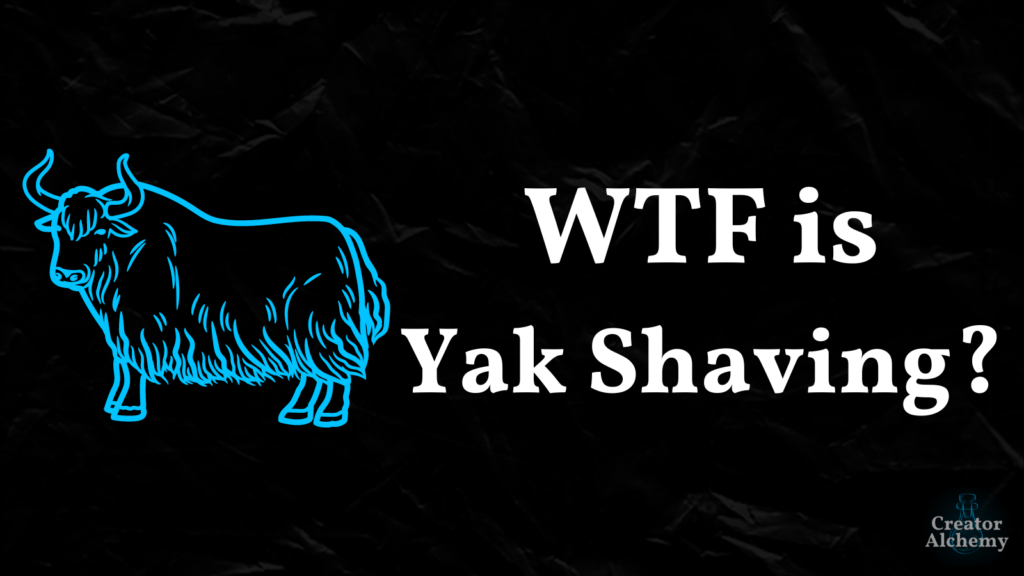You can’t throw a rock online without hitting about a dozen people claiming to be some kind of coach—life, executive, business, mindset, habits—the list is endless.
Calling yourself a coach is the new thing.
But 99% of “coaches” are as remarkable as day-old toast.
Anybody can coach.
But few do it well.
So who’s to blame for this flood of mediocrity of people slapping #coach on their profile and claiming they can help everyone achieve miraculous results for the low low price of thousands of dollars?
I’ll tell you who: Great coaches. Coaches who are so great, they’re world-class.
Because world-class coaching is like watching a violin virtuoso’s hands flow around an intricate section of a Baroque sonata, or the swirling maelstrom of a champion NHL team rushing across the ice, or gushing over your favorite author’s magnum opus—there’s a fluidity to it that makes it look effortless from the outside.
But looks are deceiving.
World-class coaches, like all elite-level performers, spend decades putting in a metric fuck-ton of effort to make the end result look effortless.
If you want to develop the fluidity of a world-class coach, you have to master the fundamental skills they spend decades honing.
But there are a few skills they learn first.
Here are the three pillars of world-class coaching…
1. Build Rapport
I took dozens of classes and hundreds of hours of supervision to get my doctorate in psychology, then spent half a year after that taking more classes to get certified as an executive coach (here’s my coaching page if you want to check it out).
80% of them revolved around one concept:
Build rapport.
Why?
Because relationships are everything.
Rapport is the single best predictor of success and satisfaction in coaching.
Even if you’re an expert—no one wants to work with you if you’re an asshole.
Rapport is about building a safe and supportive relationship with the people you work with.
Without psychological safety, people won’t feel comfortable to take risks or open up enough to do the deep introspective work that makes coaching effective.
One simple way to build rapport is to come from a place of curiosity rather than judgement.
For example, when I used to work with teenagers (back when I did therapy), parents couldn’t believe how quickly I could get their kids to open up in session.
“Why do they shut down when I ask them something, but open right up to you when you ask the exact same question?”
It was simple psychology, not magic.
When the parent would say something to their teen like, “Why did you do that?” their tone sounded like they were disapproving of what their teen did—so their teen’s defensive walls would shoot up and they’d shut down.
When I would say, “Why did you do that?” I was coming from a place of genuine curiosity—I wanted to understand their motives, and my tone carried that desire across. Because they didn’t feel judged, their walls didn’t go up and they’d keep talking.
Another way to approach building rapport is to use your personality and quirks to make people feel safe and form a connection.
One of the common reasons clients give for wanting to work with me?
I “seem fun to hang out with” and “don’t look like other doctors” because I cuss (a lot) and have tons of tattoos—the same characteristics my old bosses said would hold me back.
Rapport is just about making people feel comfortable enough to open up and have a deep, meaningful, candid conversation.
There’s no one way to build rapport.
Find what works for you.
2. Ask Open Questions
Most people ask closed questions—which can be answered “yes” or “no.”
Closed questions don’t give you much information.
“Did you do X?” can be answered with a single word.
Closed questions are rarely helpful because they don’t move the conversation forward.
Open questions are different.
They can’t be answered with a one-word response, so they yield way more information which helps you get context and dig deeper.
Here’s how to turn a closed question into an open one:
Instead of asking “Did you (do X)?” ask:
- How did you…
- In what way…
- If you could…
- How might you…
- What stops you from…
- What have you tried to…
- What would you do if…
Basically, just slap who, what, where, how, or why in front of a closed question to turn it into an open one.
Quality questions help clients develop deep insights, which lead to them taking meaningful action, which is how they get incredible results.
So the quality of your questions is everything.
It can feel awkward at first, but you’ll get there.
3. Practice Active Listening
Most people don’t listen, they just wait their turn to speak.
Active listening is different—it’s about listening with the intent to understand rather than respond.
It’s not about parroting back or paraphrasing what the other person said (which is how most people teach it).
Active listening is about listening so deeply you can synthesize and offer context to what someone says to help them make connections they wouldn’t have made on their own.
One of the hallmarks of a great coach is their ability to observe patterns, ask insightful questions, and offer mental models that guide their client forward. None of these are possible if the coach isn’t paying attention on a deeper level than 99% of people allow themselves to access.
But you can access this depth of attention by practicing listening with the intent to understand, instead of respond.
So the next time you talk to someone in casual conversation, fully focus on what they’re sharing with you instead of half-listening to their words because you’re preparing what you want to say next.
Wrap Up
People hire coaches for thought-partnering—to have someone to help them identify mental roadblocks, get out of their own way, and stay accountable toward achieving their goals.
If you want to stand out amidst the sea of mediocre coaches, focus on the fundamentals.
By building rapport, you’ll help your clients feel psychologically safe and supported.
By asking open questions, you’ll help your clients clarify their thinking.
By actively listening, you’ll help your clients develop powerful insights.
Combine these three skills, and you’ll be well on your way to developing the fluidity of a world-class coach, and your clients will flourish.
Because the right coach can be the difference between mediocrity and excellence.
Which is why world-class coaches who are effective at helping their clients get results charge $500-$3,500 an hour.
If you want to go deeper on these skills, and many others, world-class coaches leverage to help their clients flourish, check out my self-paced course.
You’ll learn the strategies top personal and executive coaches around the world leverage to stand out from the competition, build a business that supports their lifestyle, and attract opportunities most people only ever daydream about.
Click here to learn more.




